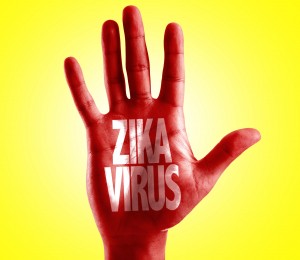The Zika Virus
 About the Zika Virus
About the Zika Virus
At this point, it is still rare you will contract the Zika Virus but it is important to be aware of symptoms and prevention. The Pan American Health Organization announced the first warning when a case was confirmed in Brazil in May of 2015.
The risk of the virus being spread in the United States right now is real as there are many people traveling to and from infected areas.
It is thought that isolated pockets of Zika virus could appear in Southern regions of the U.S., Alabama included. CDC officials are not yet certain of how the virus will spread over a certain period of time. As of February 14th, one Alabama resident in Monroe County has been confirmed to have the virus.
How is it contracted?
The virus is contracted through the bite of an infected mosquito belonging to the Aedes aegypti species. This mosquito is also known for the transmission of dengue and chikungunya viruses.
There is a strong possibility Zika virus could be contracted by an infant in utero and there have already been reports of contraction through the transfer of blood as well as sexual activity.
The virus first emerged in Uganda in 1947 and did not emerge again until the last couple of years. Since it has reemerged it seems to have covered a lot of ground.
So far, the virus has been reported in most of South America, Cape Verde off the coast of Africa, Samoa, Mexico, Puerto Rico, the U.S. Virgin Islands and the United States.
What are the symptoms?
The symptoms recorded with most cases are fever, headache, rash, joint pain and red eyes. Luckily the virus is normally mild and can last for about a week at the longest.
If you are experiencing any symptoms similar to these it is crucial that you contact your healthcare provider so they can be sure it is not a more serious virus as symptoms are similar to dengue and chikungunya.
Symptoms may be more severe for infants in utero so women who are pregnant should take strong precautions. More details on this below.
Is there treatment?
Currently there is no treatment to prevent the spread of the Zika virus. Most healthcare providers have advised the use of acetaminophen to reduce joint pain and fever. It is not advised to take NSAIDS or aspirin as these can be dangerous if the symptoms end up being that of dengue fever.
If you are diagnosed with the Zika virus you should prevent bites from mosquitos for the first couple of weeks after symptoms begin. If a mosquito bites an infected individual it will become infected and can transmit the virus to others.
Some people are arguing that we should use DDT again to make sure the virus does not spread any more but the ban has yet to be dropped on the pesticide.
What precautions should I take?
Use mosquito repellant and do whatever you can to get rid of standing water in or around your home. The Aedes aegypti mosquito likes to dwell inside of homes and can lay eggs in just a tiny amount of stagnant water, even if it is just spots of rainwater that have collected on a tarp.
Florida has just received 950 kits that test for Zika virus since they have had 16 cases thus far and other states will more than likely receive similar testing kits in hopes to find and stop the transmission of the virus.
Should I take stronger precautions if I am pregnant?
The CDC advises pregnant women to delay any trips to regions where the virus has been detected. If a pregnant woman must travel to one of these regions they should consult their healthcare provider regarding the best ways to evade mosquitos from biting.
Potential Birth Defects
According to CNN’s article “Zika Virus Sparks Public Health Emergency” babies are being born in South America with microcephaly. This is a condition where an infant is born with a smaller head size than normal. Microcephaly can cause hindered brain development as well as brain damage.
There have also been cases of Guillame-Barre Syndrome, a severe neurological condition that can potentially lead to paralysis.
Both conditions have not been directly linked to the virus but it is very likely they could be. There has been an obvious spike of these conditions in Brazil, French Polynesia and El Salvador, which in the last week has lead the CDC to declare this phenomenon an international health emergency.
Studies are currently being done and a link between the two is very likely as there are now 41 cases potentially associated with the virus.
Cases of microcephaly were reported in Tahiti in 2013 thought to be related to Zika and are similar to cases emerging in South America currently. Since Tahiti is isolated, the people became immune and the virus has not been found there since.
Make sure to take precautions as the air gets warmer and always wear insect repellant.
Call Us
We want to keep you and your loved ones safe from mosquitoes. We would be happy to make your home a mosquito barrier!
Horizons Professional Pest Control is a local, family owned business that has been proudly serving the Birmingham-metro area since 2000.
Horizons is licensed and bonded to provide a variety of services including: regular pest control services (monthly, bimonthly, quarterly), termites bonds, pest removal, flea treatments, bed bug treatments, mosquito and tick barriers, and german cockroach baiting services.
We want to keep your home safe from pests! Call us (205) 970-0577.
Click here to visit our website.
Thank you for your business!
Walt Zieverink




 (205) 970-0577
(205) 970-0577